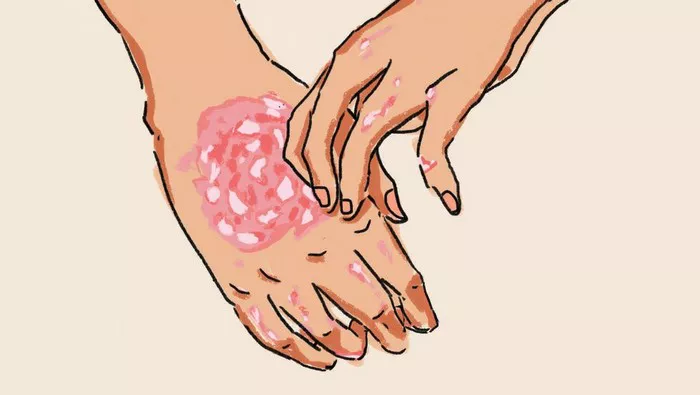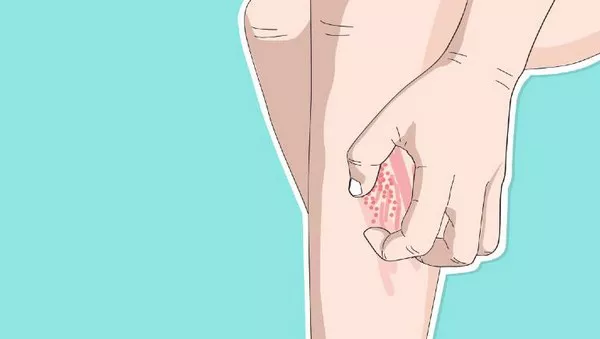Leucoderma, often a cause of concern and confusion, presents with depigmented patches on the skin, much like vitiligo. However, one of the most frequently asked questions is whether it can spread from one individual to another. This concern stems from the visible and sometimes progressive nature of the condition. People living with leucoderma or those in close contact with them often worry about contagion, which can lead to social stigma and isolation.
The skin’s appearance plays a significant role in our social interactions, and any change, especially one as noticeable as leucoderma, can have a profound impact. It’s vital to understand the underlying mechanisms and factors related to leucoderma to accurately address the question of its transmissibility. In the following sections, we will explore various aspects to provide a comprehensive answer.
Understanding Leucoderma
Definition and Characteristics: Leucoderma is a skin disorder characterized by the loss of skin pigmentation, resulting in white patches. These patches can vary in size, shape, and location on the body. They are caused by the destruction or malfunction of melanocytes, the cells responsible for producing melanin, the pigment that gives color to our skin. Unlike some other skin conditions, leucoderma is typically asymptomatic, meaning there is usually no pain or itching associated with the depigmented areas.
Differentiating from Similar Conditions: It’s crucial to distinguish leucoderma from other skin disorders that may present with similar white patches. Vitiligo, for example, shares many visual similarities but has different underlying causes and progression patterns. Some fungal infections can also cause depigmentation, but they often come with additional symptoms like scaling or redness. Proper diagnosis by a dermatologist is essential to ensure accurate treatment and to address concerns about transmissibility. A misdiagnosis could lead to unfounded fears of contagion if the condition is wrongly identified.
Causes of Leucoderma
Autoimmune Factors: In many cases, leucoderma is believed to have an autoimmune origin. The body’s immune system mistakenly attacks and destroys melanocytes, thinking they are foreign invaders. This autoimmune response can be triggered by a variety of factors, including genetic predisposition. People with a family history of autoimmune diseases or leucoderma itself may be more likely to develop the condition. For example, certain genes involved in immune regulation may be altered, leading to an overactive immune system that targets melanocytes.
Oxidative Stress and Chemical Exposures: Oxidative stress, which occurs when there is an imbalance between free radicals and the body’s antioxidant defenses, can damage melanocytes. Environmental factors such as exposure to certain chemicals, like phenolic compounds in industrial products or cosmetics, can contribute to oxidative stress. In some cases, workers in specific industries who handle these chemicals may be at a higher risk of developing leucoderma. Additionally, lifestyle factors like smoking and excessive sun exposure can exacerbate oxidative stress and potentially trigger the onset of leucoderma.
The Myth of Contagion
Lack of Infectious Agents: Leucoderma is not caused by any infectious agents such as bacteria, viruses, or fungi. It is a non-communicable condition. There is no microorganism that can be transmitted from one person to another to cause leucoderma. This is in contrast to many contagious skin diseases, like herpes simplex or impetigo, where specific pathogens are responsible for spreading the infection. Since there is no “infectious culprit,” it is impossible for leucoderma to spread in the way that a contagious disease would.
Absence of Transmission Routes: Even if we consider all possible ways diseases spread, leucoderma does not fit any of them. It cannot be spread through direct contact, like touching an affected person’s skin. Nor can it be transmitted through the air, as with airborne diseases, or via contaminated objects, like fomites. There is simply no mechanism by which the depigmentation-causing factors in leucoderma can move from one individual to another. This lack of transmission routes further solidifies the fact that leucoderma is not contagious.
Social and Psychological Impact
Stigma and Misconceptions: Despite the scientific evidence that leucoderma is not contagious, there is still a significant amount of social stigma attached to it. People with leucoderma may face discrimination in various aspects of life, including employment, relationships, and social gatherings. This is due to the widespread but incorrect belief that it can be passed on. Misconceptions can lead to unfounded fears, causing others to avoid those with leucoderma, which further isolates the affected individuals.
Psychological Effects on Patients: The psychological toll on patients with leucoderma can be substantial. They often experience lowered self-esteem, anxiety, and depression. The fear of spreading the condition to loved ones, even though it’s unfounded, adds to their distress. Coping with the visible changes in their skin and the reactions of others requires significant emotional strength. Support from family, friends, and healthcare providers is crucial to help them navigate these challenges.
Management and Treatment
Treatment Options: While leucoderma is not contagious, treatment options are available to manage the condition. Topical corticosteroids can be used to reduce inflammation and potentially slow down the progression of depigmentation. Phototherapy, such as narrowband UVB, can stimulate melanocytes to produce pigment. In some cases, surgical interventions like skin grafting or melanocyte transplantation may be considered for more severe or stable cases. However, treatment outcomes can vary, and it’s important to work closely with a dermatologist to find the most suitable approach.
Lifestyle Modifications: In addition to medical treatments, lifestyle changes can play a beneficial role. A diet rich in antioxidants, vitamins, and minerals can support the health of melanocytes. Regular exercise and stress reduction techniques, like meditation or yoga, can help improve overall well-being and potentially have a positive impact on the condition. Avoiding harmful chemical exposures and protecting the skin from excessive sun damage are also important preventive measures.



























